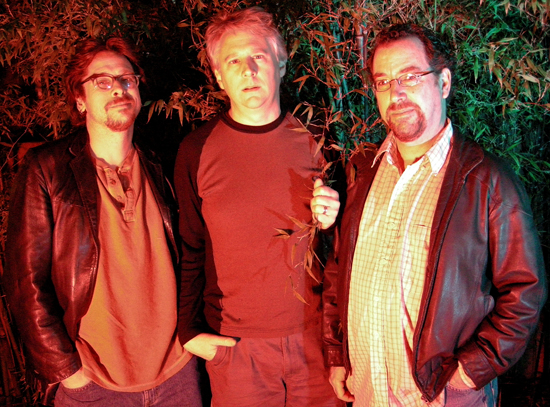Nothing, except for maybe just a hint of a swagger, gave away John Talley-Jones as a past and present member of a punk band ““ much less one by the crude name of the Urinals.
It hasn’t always been the Urinals, but it did start out that way.
While attending UCLA in the late ’70s and early ’80s, Talley-Jones and friends living on the fourth floor of Dykstra Hall decided just for kicks to enter the dorm talent show as a five-piece band, not knowing how to play their instruments or exactly what they were doing.
The band worked up four songs that were an immediate hit with the crowd, standing out from the acoustic folk duo, the jazz band and other straight acts as an ironic group that didn’t take itself seriously.
By its next performance at the dorm Halloween party, however, stripped down to three members ““ Talley-Jones on bass, Kjehl Johansen taking up the guitar in place of the toy organ and Kevin Barrett still on toy drums ““ the band was, in fact, taking itself seriously.
Subsequent name changes reflect the band’s struggle to reconcile its immediate sound, which is extremely minimal, direct and full of distortions, with its lyrics, which, while to-the-point and darkly filled with eroticism, are often poetic and profound. Switching to 100 Flowers in the early ’80s, back to the Urinals when the band reformed in 1996, then to the Chairs of Perception in 2006, which came with the change to current guitarist Rob Roberge, they again returned two years later to the name that started it all.
“We felt like anybody who was coming to see us on the basis of a name is going to get a presentation that’s a little bit more sophisticated than the name belies. And so we felt that there was truth in advertising to change our name,” Talley-Jones said.
The original moniker, chosen at the time for being childish and a little bit offensive, won out in the end simply because it is how the band is best known.
Now highly regarded in the sub-culture as an influential band that pioneered bold new sounds, the Urinals played a hand in shaping notable underground bands past and present, like Minutemen and No Age, and such indie big names embraced by mainstream listeners as Sonic Youth and Yo La Tengo. The band will appear at The Smell in downtown Los Angeles tonight with English band Lovvers, Neverever and Signals.
UCLA alumnus Falling James got to know the band and has attended more than 50 of its concerts over the years since starting up the Leaving Trains as guitarist and vocalist with the Urinals’ help.
“They were just so down to earth, not stuck up like a lot of the early punk bands were. They didn’t have that image of leather jacket toughness. They were just friendly, silly music fans. We just totally gravitated toward that,” James said.
When the hard-core scene in Los Angeles took over in 1980 and 1981, the Urinals’ faster, harder but still melodic music was already light-years ahead of its time in terms of speed and aggression, according to Danny Gromfin, head of Warning Label Records, which issued the Urinals’ last album, “What is Real and What is Not,” and is reissuing their earlier material.
Since their very beginnings on toy instruments and distortion-ridden recordings done in Dykstra’s basement weight room with guitar, bass and vocals all filtering through one amp, the Urinals have kept the same level of intensity and directness in their music. Songs are still kept short and to the point in order to articulate one specific idea per song.
Talley-Jones said he believes the band’s most significant change is the fact that band members do know how to play their instruments now, although he and drummer Barrett remain self-taught and play by rote and memory.
“We can’t pretend to be incompetent. It wouldn’t be fair. You have to move forward; you have to learn things. Your presentation has to reflect what you know,” Talley-Jones said. “I think there’s more dynamism now in what we do, a little subtlety.”
James said he believes the Urinals have evolved, bringing more art rock and funk to the mix while still keeping the excitement level of the crude, primitive-sounding band they began as.
“Even though they’ve become better musicians, more wide-ranging songwriters, they don’t sound slick or anonymous. Their current music now is more adventurous and more open-minded than their early stuff,” James said.
With the advent of the Web providing a place for bands to credit their influences, Gromfin said he believes it has allowed people to dig out information on a band like the Urinals, which would have been impossible to do 10 years ago.
“I think every band has their moment. Even though they’ve been around for 30 years, I think they’re more popular now than they’ve ever been,” Gromfin said.
It turns out the intellectual streak projected by Talley-Jones was not a projection at all, and not out of line with the Urinals’ particular breed of minimal punk that has made it all right to be a thinker and a punk rocker too.
